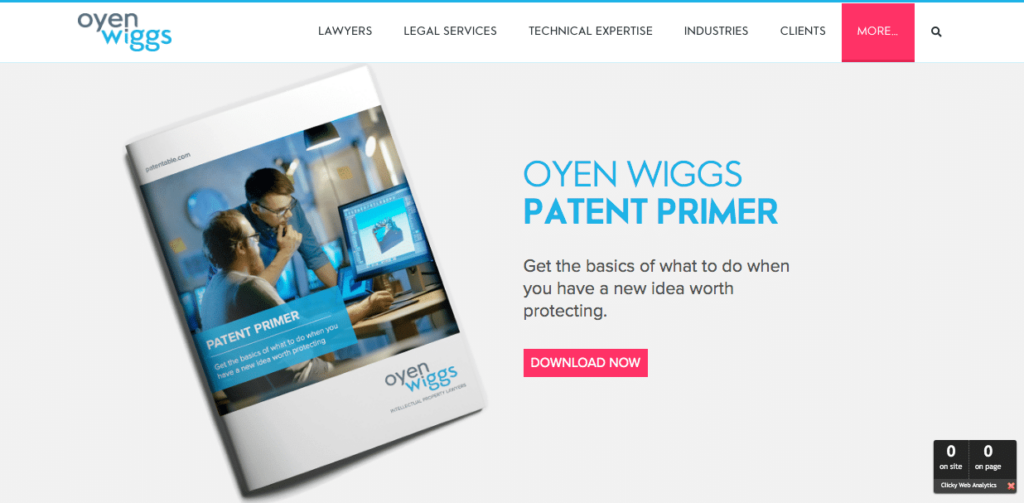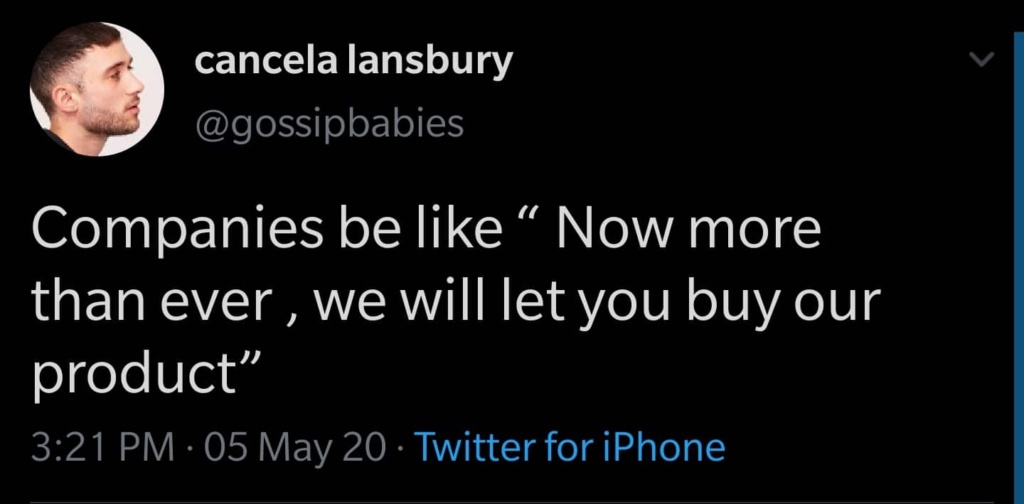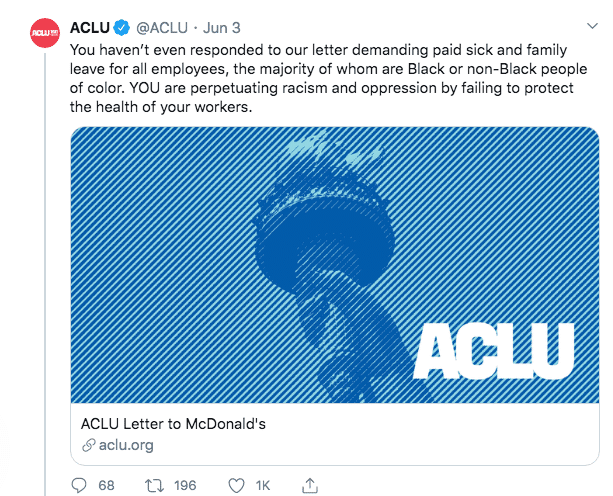In summer 2023, the world had high hopes for Meta’s newest social media platform, Threads. At a time when it looked like Elon Musk’s overnight rebrand from Twitter to X would contribute to the...
June 25, 2024
Law Firm Messaging Strategies During Covid-19 & Times of Crisis: Part 2
How should law firms market themselves during the ongoing Covid-19 pandemic?
For our profession (legal marketing) and for our clients (law firms) this is the question of the day. There are no easy answers. Every law firm is going to need to find the approach that works best for their goals, clients, and audience.
To help you along, we’ve put together this three-part blog post. In Part 1, we explored how the legal market is changing and how firms should adjust their marketing budgets and large-scale projects. In this section (Part 2), we’ll look at effective messaging strategies during times of crisis, and in Part 3, we’ll dive into some specific digital marketing strategies.
The Moment and the Message
Steve Jobs, perhaps the most famous marketing strategist, once said that the role of the marketer is to “master the topic, the message, and the delivery.” Law firms and lawyers tend to have an excellent grasp of their topics. It’s the message and the delivery that is going to take some additional thought.
This is a difficult moment and it’s essential that law firms pay careful attention to their messaging and ensure that everything they tweet, write, and post reflects their values and the concerns of their audience. Behind a trending #COVID19 is a very real global health crisis. Law firms need to be sensitive, compassionate, and useful as they engage with this topic and with social justice causes.
Focus on Providing Value Over Self-Promotion
Marketing during a global health crisis can feel strange and even a little selfish. People are anxious for their family and friends and are concerned about their health, businesses, and careers. You may wonder, is this really the time to pitch them?
This unease, while understandable, comes from equating marketing with sales. But marketing is so much more than sales or advertising. It’s about showing your audience who you are, how you can help, and why they should trust you to do so. Law Firms and legal marketers are in an enviable position of having expertise that is very much needed right now. People and companies need insights, strategic direction, and legal expertise now more than ever. Your content is not untimely nor is it frivolous.
“This is the time to be there, truly, for your clients.”—McKinsey & Company, COVID-19 Implications for Law Firms
We suggest law firms adopt an emphatic approach to their marketing. As Rand Fishkin, an influential digital marketing expert, wrote in a blog post: “The Covid crisis demands that we rapidly expand our empathy: we feel what our customers are feeling…what everyone is sharing in, and we respond accordingly.”
Aim to help people first and foremost; you’ll earn their attention, respect, and their business as a result.
Fewer Loudspeakers, More TedTalks
We sometimes talk about marketing as existing between two poles: marketing that interrupts versus marketing that provides value—the Loudspeaker v. the TedTalk.
Loudspeaker marketing is anything that takes up airspace or sticks in your field of vision, demanding attention whether the audience wants to hear it or not. Think of radio ads, Internet pop-ups, junk mail, sponsor logos on team jerseys, and airplanes pulling sky-banners. The goal is to reach a wide audience, willing or not, and promote, promote, promote.
TedTalk marketing, by contrast, invites audiences to participate in an enjoyable, informative, or moving experience. It provides people with value without asking for anything in return except for their time.
In reality, most marketing exists somewhere between these two extremes, largely because creating TedTalk quality content is time-consuming, expensive, and requires that those involved actually have compelling insights that audiences want to hear (again, law firms are in an enviable position in this respect). It’s much easier and cheaper to launch and scale Loudspeaker-style marketing and the truth is that not everyone has to love an ad, billboard, or flyer for a campaign to generate revenue.
In our current moment, however, we encourage law firms to prioritize marketing that contributes, offers insights, generates discussion, and otherwise provides value over marketing that is purely promotional. Why? “Clients are looking for sound information, hard data, and impartial advice,” notes McKinsey & Company. The same is true of your target audience.
While your law firm is not competing with B2C and non-legal B2B companies for clients, you do indirectly compete with non-legal entities for views, engagement, and mental space on social media, digital platforms, and in print media. Information overload is very real. Useful insights, however, are still very much in demand. Law firms have a resource that is highly sought out in the current moment (legal insights) and this gives firms an edge in TedTalk marketing: i.e., content marketing and the creation of articles, videos, eNewsletters, webinars, and other high-quality resources.

Here at fSquared Marketing, we’ve taken our own advice and focused on creating in-depth, helpful resources for our audience (law firms, lawyers, and legal marketing professionals). We’ve collaborated with other marketing experts to put together a whitepaper on legal marketing during Covid-19. We’ve also been collaborating with the LMA on research into stress and wellbeing in legal marketing and the impact of Covid-19 (thank you to everyone who completed our survey!); the report will be released at the end of October 2020. Not everything needs to be Covid-19 focused. During this time, we’ve also been continuing to educate on web accessibility in legal as we believe that is both an important inclusivity issue and a blind spot for many firms.
From our law firm clients, we’ve seen admirable initiatives aimed at providing small and medium-sized businesses with timely, actionable updates, a public safety PSA campaign conducted through social media, and many exceptional webinar presentations. We’ve seen law firms embrace their people and encourage collaboration between teams and departments. In other words, we’ve seen numerous examples of emphatic marketing in action.
Don’t Make The Moment Just About You
We’ve also seen many companies try to turn real crises into self-promotion. This is potentially damaging to the brand.

It’s especially bad for the brand when marketing comes across as hypocritical. Amazon, for example, ran a television ad celebrating its “Amazon retail heroes”, which rang false for many viewers given several Amazon worker strikes over a lack of safety protection, and the fact that Former Amazon vice-president Tim Bray quit in solidarity with three employees who were fired for speaking out about a lack of Covid-19 precautions in the company’s warehouses.

Actions Speak Louder than Tweets
George Floyd’s death and the protests that sparked, similarly lead many companies to try to speak to the moment and show solidarity. This was done with varying levels of success. “When brands adopt language from social movements, they wade into divisive territory,” observes Marketing Dive. Especially on social media, brands need to be careful that messaging, even if well intentioned, doesn’t come across as hypocritical.
For example, McDonald’s posted a video on Twitter naming victims of police brutality under the message, “They were one of us”. The American Civil Liberties Union commented this in response:

“Regardless of the approach, companies should proceed with care when commenting on current events,” notes an article in the Harvard Business Review, “especially when they involve social justice or politically polarizing topics.”
In order to be relevant, marketing needs to speak to the current events. And there is increased pressure from consumers (including purchasers of legal services) for companies to make it clear where they stand on social justice issues.
Even if a sentiment is heartfelt and well intentioned, it can ring hollow if it isn’t supported by concrete action. Through social media and websites, it’s easier than ever for people to spot hypocrisy which is toxic to brand authenticity and might even lead to liability risks. Law.com recently published a fascinating article about a lawsuit against Oracle Corporation alleging “that Oracle’s failure to appoint racially diverse directors and officers—while making public statements avowing a commitment to racial diversity—constitutes securities fraud.” While it seems unlikely that this lawsuit will succeed—as the author notes, ”if there’s liability for corporate hypocrisy, that’d be the end of American capitalism”—this is bad news for the Oracle brand.
“Authenticity in marketing has always been a best practice, but it becomes even more crucial in this time of social unrest and Covid-19,”
– Marketing in the Age of Resistance, HBR
Market to the moment, by all means, but ensure that your firm is actually taking action and contributing. If you have nothing to add to a conversation, take it as an opportunity to listen and learn.
Law Firms Rising to the Occasion
Many law firms have indeed backed up their statements with action, and made concrete contributions to address racial inequality. Perkins Coie, for example, has pledged to contribute at least $500,000 over the next five years to “to community-led as well as local and national organizations that promote racial equality through legal representation, policy advocacy, and community-based activities”. The firm is also advancing pro bono initiatives, programs, and fellowships. Crucially, the firm is also continuing with its robust Strategic Diversity & Inclusion Plan.
Many law firms are giving generously of their time and expertise. Barnes & Thornburg launched a podcast in May 2020 to “make room for courageous conversations about diversity and inclusion in the legal profession.” Orrick, A global law firm focused on technology and innovation, announced the launch of the Orrick Racial Justice Fellowship Program “to enable at least five Orrick lawyers to devote a year each to working on civil rights and social justice issues”. WilmerHale has come out with a strong statement in support of “meaningful and durable police reform”, as well as pledging financial contributions, pro bono initiatives focused on “police accountability” and reform, and selecting two fellows to “work at any civil rights organization that is committed to addressing issues related to systemic racism and criminal justice, and police accountability.”
Law firms should also be commended for looking inwards and taking steps to improve diversity and inclusion within their own halls. Jackson Walker, one of the oldest law firms in Texas, tracks its progress and celebrates its accomplishments in an annual Diversity & Inclusion Report. Women have also stepped into leadership roles at the firm, including Julia Mann who became the firm’s Managing Partner in San Antonio.
Helping is a Form of Marketing
If your firm is contributing to an organization, providing pro bono, or otherwise making peoples’ lives easier, safer, and saner during this difficult time, we encourage you to share the news.
Concerned about coming across as too self-important? You can raise awareness of your good deeds while keeping the focus on the issue by providing your audience with a next step to take. For example, if your firm donated to an initiative that is providing PPE to nonprofits, you could include a link to the donation page.
Don’t be afraid to promote other businesses, companies, and yes, even the occasional competitor, in the pursuit of providing your audience with value. Read a great post by a lawyer at another firm? Share it along with your own thoughts on LinkedIn. Consider collaborating with other firms to provide multifaceted resources; for example, your commercial real estate team might collaborate with a litigation boutique to explore topics related to leasing disputes during COVID-19.
This is not the time to jealously hoard your pearls of wisdom. Now is the time for selflessness, empathy, and providing your audience with as much value as possible. Good will is good branding. Plus, when you champion other people, they are likely to return the favour.
Another benefit of collaboration: Taking part in such as guest authoring, collaborating on creating content, or appearing as a webinar panelist is also a great way to earn links from other websites to your firm’s website. Backlinks from other websites are one of the most important SEO ranking factors.
Small businesses and entrepreneurs are especially hard hit by the current crisis, especially those in the hospitality, travel, and fitness industries. While they may not be your most profitable revenue source for your firm, anything you can do to help these businesses won’t go unnoticed and is sure to earn you client loyalty and goodwill in the market.
Read Part 3: Digital Marketing Strategies for Law Firms During Covid-19
Sign Up To Our Newsletter

